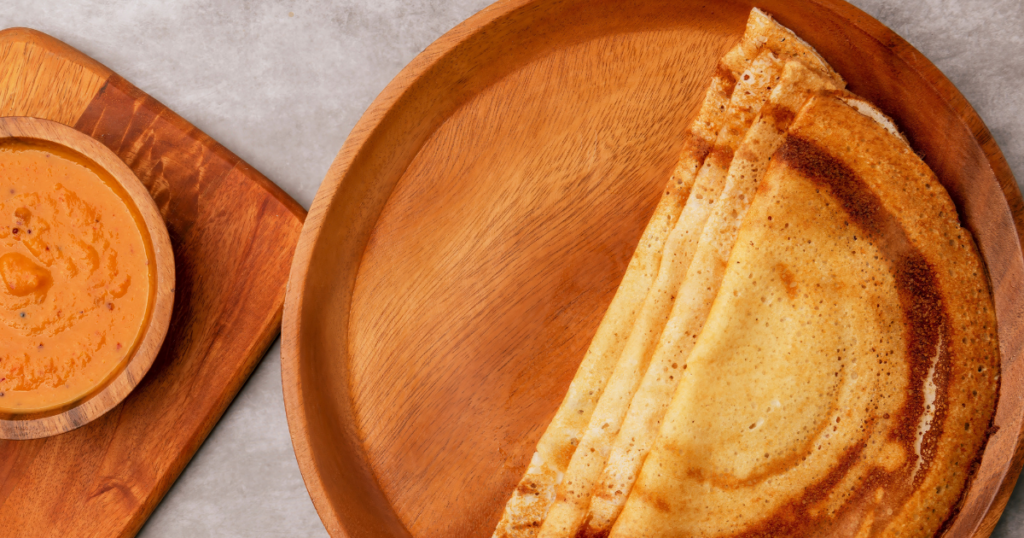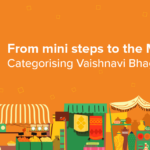Recently, many people are embracing a vegan lifestyle, not just as a diet but as a holistic approach to well-being. This shift results from an empowered choice driven by health benefits, environmental consciousness, and ethical reasons. Vegan dishes, free from animal products and packed with essential nutrients, empower you to take control of your health. Whether you are a long-time vegan, considering the switch, or just curious about incorporating more plant-based meals into your diet, this choice can be crucial in nourishing your body and mind.
A well-balanced vegan diet typically includes fruits, vegetables, grains, nuts, and seeds, making it rich in fibre, vitamins, and antioxidants. These nutrients help boost the immune system, improve heart health, and provide sustained energy. The advantages of being vegan are linked to a lower risk of chronic diseases, making it a healthier option for many. The versatility of vegan cuisine also means you don’t have to sacrifice taste or variety to eat healthy. From delicious vegetable stir-fries to creamy nut-based curries, there are many flavorful options to explore. This blog will teach about the top 5 health benefits of incorporating vegan dishes into your diet and explore some popular gluten-free vegan dishes.
Top Health Benefits of a Vegan Diet
Vegan dishes offer a multitude of benefits that go beyond basic nutrition. Here are the top 5 health benefits of a vegan lifestyle:
1. Improved Heart Health
Vegan diets are naturally low in saturated fats and cholesterol, which are linked to heart disease. By excluding animal products and focusing on whole plant foods, vegan dishes help lower blood pressure and reduce the risk of heart-related issues. Many studies have shown that a plant-based diet can significantly decrease the risk of developing cardiovascular diseases. The abundance of fibre in vegan foods also aids in maintaining healthy cholesterol levels, ensuring better heart function.
2. Enhanced Digestive Health
One key component of vegan dishes is dietary fibre, crucial for maintaining good digestive health. Fiber helps regulate bowel movements, prevents constipation, and promotes a healthy gut microbiome. Vegan meals are rich in fruits, vegetables, and whole grains, contributing to a healthier digestive system. A balanced gut environment improves digestion and boosts overall immunity and mood.
3. Weight Management and Reduced Obesity Risk
Vegan diets are often associated with lower body weight and reduced risk of obesity. This is primarily because plant-based meals are less calorie-dense than animal-based ones while still high in nutrients and fibre. A vegan diet helps keep you full longer, reduces cravings, and encourages healthier eating habits, making it a great choice for those looking to manage their weight.
4. Better Blood Sugar Control
For those looking to manage blood sugar levels, vegan diets can be an excellent option. The high fibre content in vegan dishes slows down the absorption of sugar into the bloodstream, preventing spikes and crashes in blood sugar levels. This makes vegan meals particularly beneficial for individuals with type 2 diabetes or those looking to maintain stable energy levels throughout the day. Plant-based diets have also increased insulin sensitivity, improving blood sugar control.
5. Reduced Risk of Chronic Diseases
Following a vegan diet can help reduce the risk of several chronic diseases, including certain types of cancers, hypertension, and kidney disease. The antioxidants and phytonutrients found in plant-based foods support in fighting inflammation and protect cells from damage. Moreover, the absence of processed meats and high-fat dairy products reduces exposure to carcinogens and harmful chemicals.
Common Gluten-Free Vegan Foods
A vegan diet plan can be customised to cannot digest gluten, whether due to celiac disease or some allergy. Also, many athletes and doctors today suggest gluten-free eating. Here are some popular gluten-free vegan dishes that are both nutritious and delicious:
1. Tapioca Cutlets (Sabudana)

Tapioca, or sabudana, is used in many gluten-free dishes. Tapioca cutlets, made from soaked tapioca pearls, boiled potatoes, and spices, are a delicious snack or breakfast option.
2. Avial with Red Rice

Avial is a traditional South Indian vegetable stew made with various seasonal vegetables, coconut, and a yoghurt-based sauce. It’s usually paired with red rice, which is naturally gluten-free. Combining these two dishes makes for a wholesome meal high in fibre, vitamins, and minerals.
3. Veg Zucchini Pasta

For those who love pasta but need to avoid gluten, zucchini pasta is an excellent alternative. Made from spiralized zucchini, this dish is low in carbohydrates and calories but high in vitamins and antioxidants.
4. Kuttu Dosa (Buckwheat)

Buckwheat is a highly nutritious, gluten-free grain that is often used in Indian cuisine. Kuttu dosa is made from buckwheat flour, making it a great alternative to traditional rice-based dosas. It’s typically served with chutneys and sambars, providing a wholesome and balanced meal that is filling and easy to digest.
Order Gluten-Free Meals on Swiggy!
If you want to explore gluten-free, vegan options without the hassle of cooking, Swiggy offers a variety of dishes. You can enjoy delicious gluten-free, vegan meals from top restaurants delivered to your doorstep. Simply search for restaurants near me to find the best options available. Swiggy has something to cater to every taste and dietary preference, from hearty tapioca cutlets to nutritious buckwheat dosa. Order food online now and experience the best of vegan and gluten-free cuisine in the comfort of your home!
Conclusion
Vegan dishes are more than just a dietary choice—they’re a lifestyle that promotes health, sustainability, and compassion. By incorporating more plant-based meals into your diet, you can enjoy numerous health benefits, from improved heart health to better weight management. Additionally, vegan dishes can easily be adapted to fit a gluten-free diet, offering delicious and nutritious options for those with specific dietary needs. So, whether you want to go vegan, cut out gluten, or simply eat healthier, there’s never been a better time to embrace plant-based eating.
FAQ
1. Who should follow a gluten-free diet to attain the maximum benefits of Vegan?
A gluten-free diet is recommended for individuals with celiac disease, gluten intolerance, or wheat allergies. However, others may choose to avoid gluten for personal health reasons.
2. Can a gluten-free diet help with weight loss?
While gluten-free alone doesn’t guarantee weight loss, focusing on whole foods like fruits, vegetables, and lean proteins can promote healthier eating habits.
3. What foods should I avoid on a gluten-free diet?
Avoid foods like wheat, barley, rye, and processed foods containing gluten. Look for gluten-free labels and opt for naturally gluten-free grains such as rice, quinoa, and buckwheat.
Author Bio
Satisfying your cravings, one bite at a time. Discover the best eats, trends, and uncover the hidden gems with us to make your online ordering or dining experience a memorable one.










































































